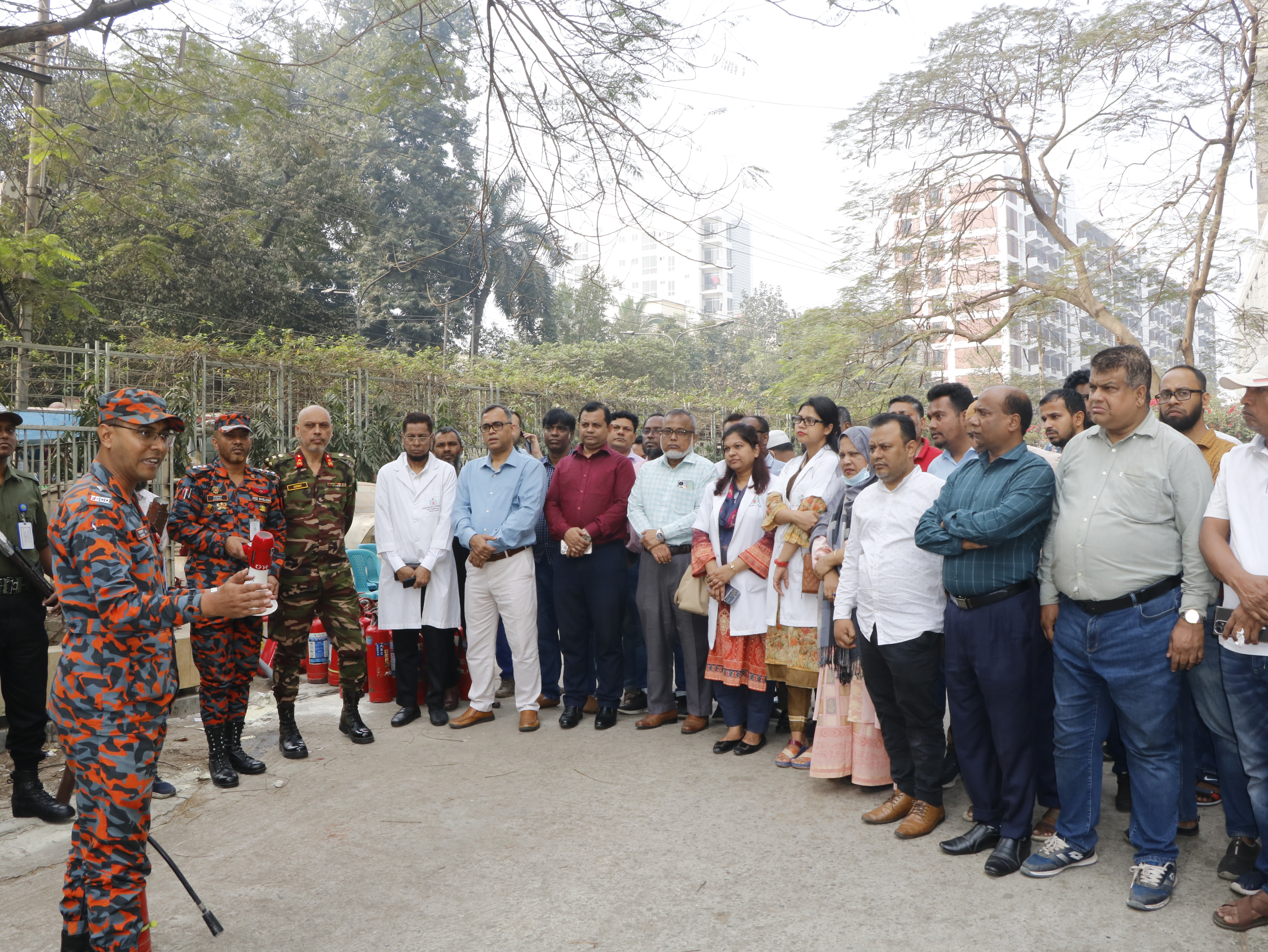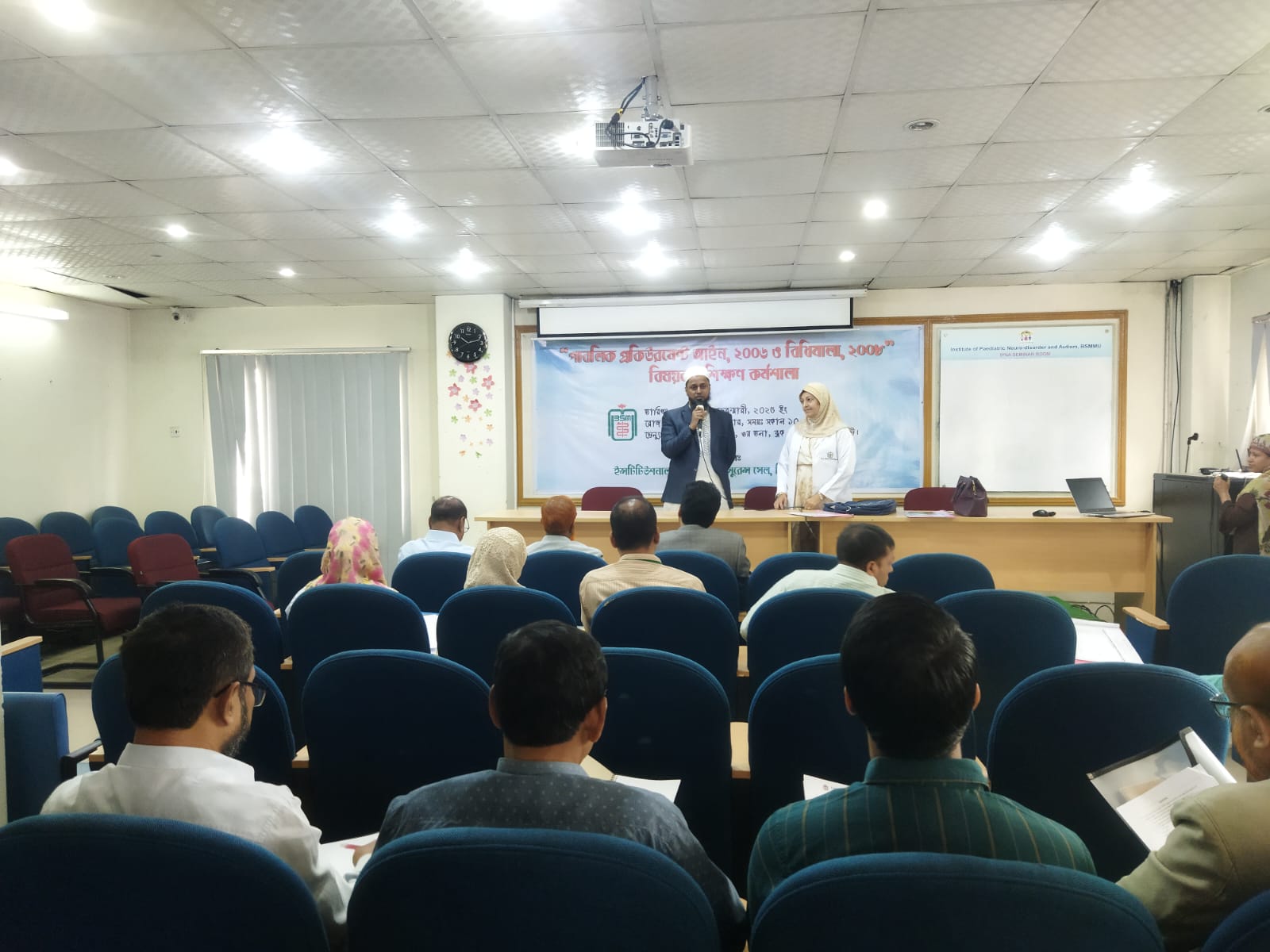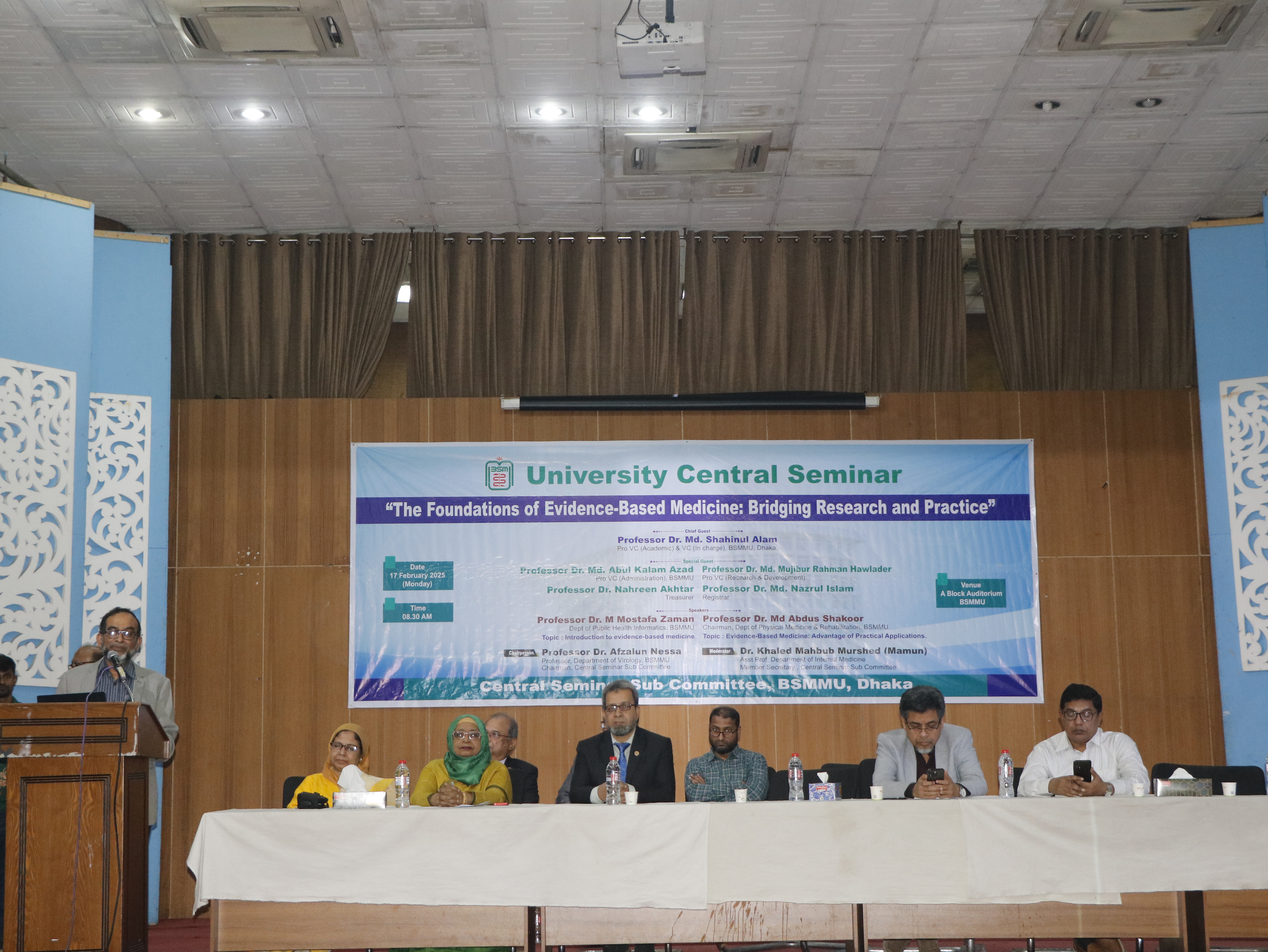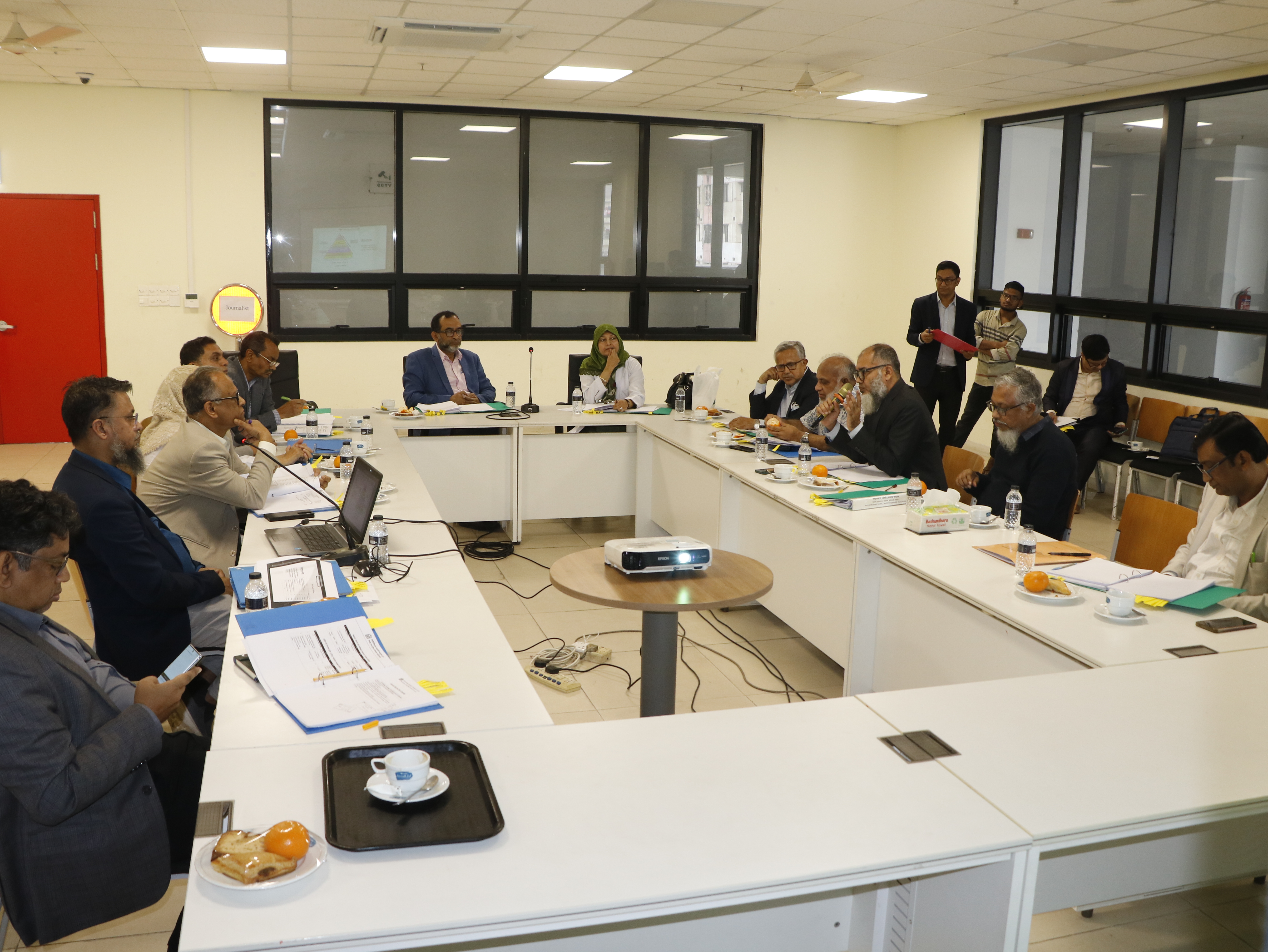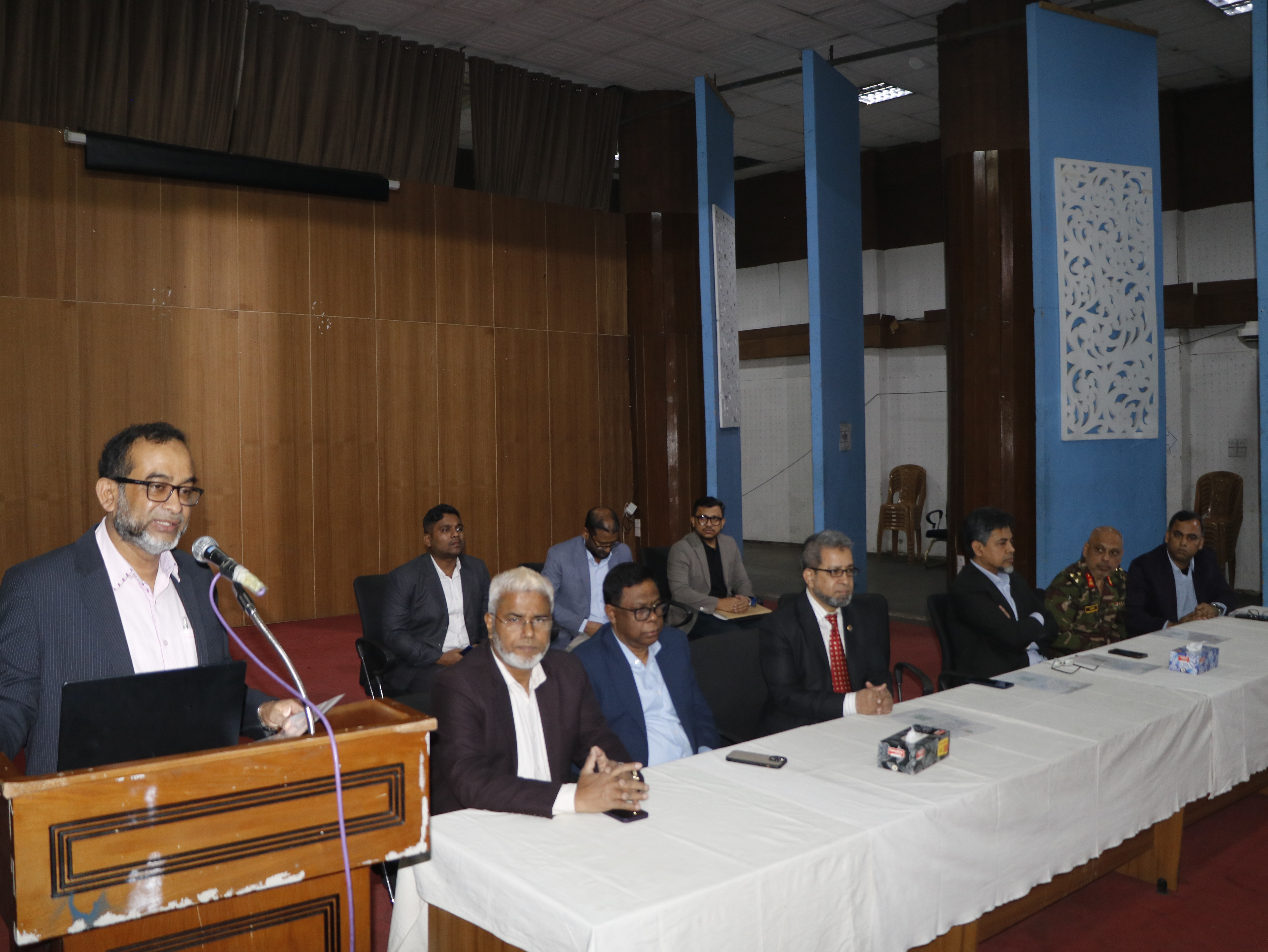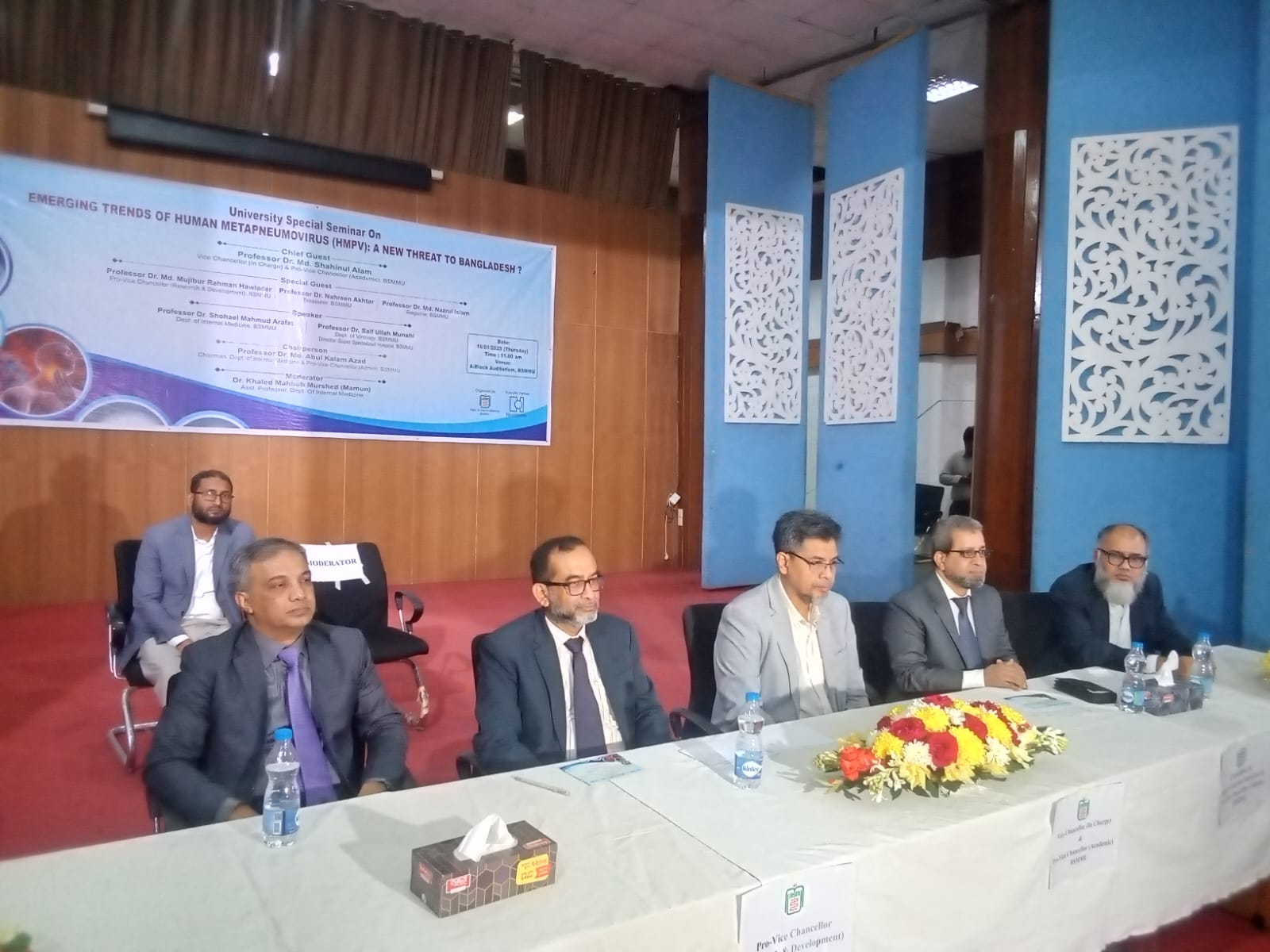
BSMMU Hosts Special Seminar on the Globally Concerning HMPV Virus
16 Jan, 2025 11:00 AM - 16 Jan, 2025 01:00 PM |
BSMMU Hosts Special Seminar on the Globally Concerning HMPV Virus
A special seminar on the globally concerning HMPV virus was held today, January 16, 2025, at the A-Block Auditorium of BSMMU. The seminar, titled “Emerging Trends of Human Metapneumovirus-HMPV: A New Threat to Bangladesh?”, was inaugurated by the Honorable Vice-Chancellor of the University, Professor Dr. Md. Shahinul Alam. The Honorable Pro-Vice Chancellor (Research and Development), Professor Dr. Md. Mujibur Rahman Howlader, was a special guest at the seminar. The seminar was chaired by the Pro-Vice Chancellor (Administration), Professor Dr. Md. Abul Kalam Azad, and conducted by Assistant Professor Dr. Khaled Mahbub Morshed Mamun. Presentations and discussions were led by Professor Dr. Sohel Mahmud Arafat from the Internal Medicine Department, and Professor Dr. Saif Ullah Munshi from the Virology Department, who is also the Director of the Super Specialized Hospital and Dean of the University.
In his speech as the Chief Guest, Vice-Chancellor Professor Dr. Md. Shahinul Alam emphasized that HMPV is an old virus and there is no need to panic, but caution is necessary. He advised following health protocols like hand washing and wearing masks. He reassured the audience that BSMMU is fully prepared for testing and treatment of HMPV infection.
Pro-Vice Chancellor (Research and Development) Professor Dr. Md. Mujibur Rahman Howlader stated that there is no need to panic about HMPV, but vigilance is important, especially for individuals with weakened immune systems.
In his chairperson's remarks, Pro-Vice Chancellor (Administration) Professor Dr. Md. Abul Kalam Azad highlighted the need for public awareness about HMPV, stressing that while the virus itself is not a major cause for alarm, people with weakened immunity, such as organ transplant recipients or cancer patients, should exercise caution. He also recommended that individuals with low immunity take seasonal vaccines like influenza and pneumonia vaccines to protect themselves.
Professor Dr. Sohel Mahmud Arafat from the Internal Medicine Department explained that HMPV is an RNA virus typically affecting the human respiratory system. It is not a new virus, as it was first identified in the Netherlands in 2001 and in Bangladesh in 2017. Since then, it has been detected nearly every year in Bangladesh. The virus is generally not severe and symptoms typically include fever, cough, nasal congestion, sore throat, skin rashes, and sometimes respiratory distress. While anyone can contract the virus, children, elderly people, and those on immune-suppressing medications, such as chemotherapy or steroids, are more susceptible.
The virus is transmitted primarily through droplets from sneezing and coughing. Simple preventive measures like wearing a mask, washing hands frequently, and maintaining a safe distance can prevent the spread of the virus. The infection is more common in winter and spring, and in most cases, the symptoms resemble those of the flu and resolve on their own within 5 to 7 days. Testing is generally not required unless the patient is elderly, has cancer, or is suffering from multiple health conditions. There is no specific antiviral treatment or vaccine for HMPV, but symptomatic treatment with medications like paracetamol for fever and antihistamines for cold and cough, along with plenty of fluids and rest, is typically sufficient for recovery.
Professor Dr. Md. A. Mannan, Chair of the Department of Neonatology, mentioned that if a mother is infected with HMPV, there is no barrier to breastfeeding her child.
Experts did not issue any warnings about the virus potentially becoming severe, but they urged everyone to stay cautious. They also noted that having received a COVID-19 vaccine or previously being infected with COVID-19 does not protect against HMPV, as the immunity from COVID-19 does not safeguard against this virus. According to a 2021 report from Lancet Global Health, HMPV is responsible for 1% of deaths in children under five from severe respiratory infections. Despite several vaccines being developed for other viruses after the spread of COVID-19, no vaccine for HMPV is currently available. Experts also cautioned against the use of antiviral medications for HMPV.
Editor: Dr. Saiful Azam Ranju. Photos: Arif Khan. News: Prosunto Mazumder.

